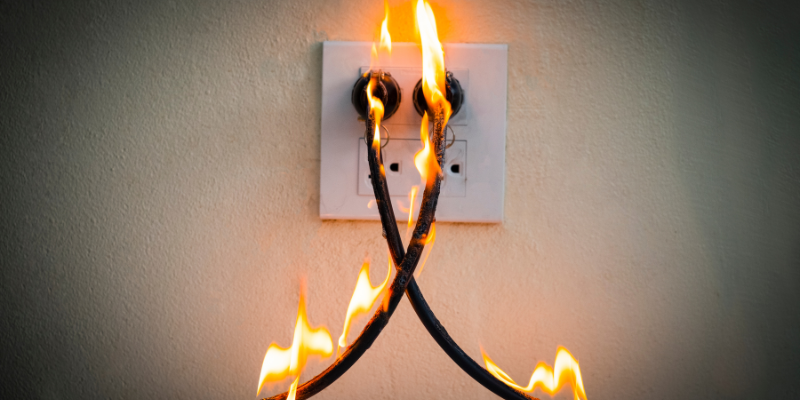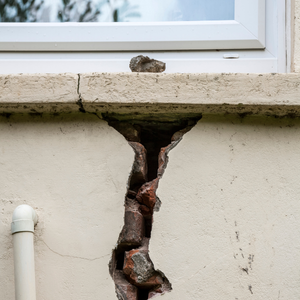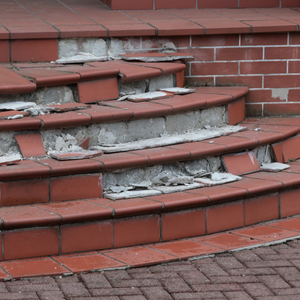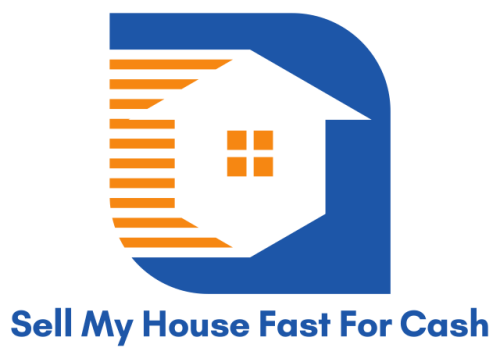
Code violations aren’t fun, but they’re also not the end of your sale. Many Washington homeowners deal with this exact situation and still manage to sell without losing their minds. You’re in good company with Sell My House Fast For Cash, even if it doesn’t feel like it right now.
The truth is, you’ve got more options than you think. Whether you fix things, negotiate credits, or find a buyer who’ll take the house as-is, there’s a path forward that works for your situation.
This guide will give you everything you need to know about selling a house with code violations in Washington, so you can stop worrying!
What Are Code Violations in Washington State?
Code violations happen when your property doesn’t meet current building, safety, or zoning standards. Washington uses the International Residential Code as a starting point, but each city layers on its own rules. What’s fine in Spokane might fail inspection in Seattle.
Codes also change constantly. The electrical code updates every three years, so wiring from 2015 might not cut it today. Most older homes have something that wouldn’t pass if built now, and that’s where violations come in.
Common Types of Code Issues in Washington Properties
What code violations actually show up in Washington homes? Electrical problems lead the pack, followed by plumbing issues and un-permitted work that comes back to bite you.
Required Code Violations

Some violations must be fixed before you can sell or at least before a buyer can close with financing. These are the serious safety issues that cities or lenders won’t budge on.
Electrical hazards that pose fire risks fall here, as well as major structural problems that make the house unsafe, and anything that creates immediate health dangers. If your city has already cited the violation and issued fines, you’ll likely need to resolve it.
Banks often refuse to lend on properties with significant un-permitted additions or conversions, like that garage-turned-studio that never got approved. FHA and VA loans are especially strict about what they’ll finance.
Grandfathered Code Violations
Not everything old is automatically wrong. If your house was built to code back in the day, many features get grandfathered in. They don’t meet today’s standards, but you’re not required to upgrade them unless you’re doing major renovations.
Your original single-pane windows from 1955 are probably grandfathered. The knob-and-tube wiring that hasn’t been touched since 1940? Gets trickier, but might slide if it’s still functioning safely.
The catch is that once you start remodeling that room or replacing that system, you’ve got to bring everything up to current code. And buyers might still want you to fix grandfathered issues even if you’re not legally required to.
Can You Sell a House with Code Violations in Washington?
Yes! Houses with code violations still sell in Washington. You’re not doomed. A lot of buyers out there, including investors, flippers, and handy types, actually prefer buying homes with issues because they get better deals.
Some sellers fix everything and get top dollar. Others knock money off the price and call it a day. Cash buyers will literally take your house right now, violations and all, and not blink twice about it. If that sounds like the easier route, you can sell your home for cash in Spanaway or nearby cities and close quickly without worrying about repairs or inspections.
The real question is how you want to play this. Fast sale? Slow and maximize profit? Somewhere in between? Your violation situation doesn’t box you in. It just changes your strategy a bit.
Washington State Laws and Regulations to Know
Washington has rules about this stuff, and yeah, you need to follow them. But they’re not scary. They just tell you what to say, when to say it, and how to handle the paperwork side of things.
Legal Requirements for Disclosure in Washington
You must inform buyers about known code violations. Washington law requires written disclosure of defects, and trying to hide problems is both illegal and dumb. This applies especially if you’re selling a hoarder house, as these properties often have hidden damage and safety issues. Inspectors will find them anyway, and then you’ve got angry buyers threatening lawsuits.
You must complete the state’s disclosure form accurately and honestly. Write down what you know. If something seems off but you’re not sure, say that.
If you are upfront, you are protected legally, and the sale will keep moving. Lie about violations, and you could get sued after closing, which is way worse than just dealing with the truth up front.
Municipal Variations Across Washington
Seattle does things differently from Spokane. Tacoma has its own quirks. Bellingham? Totally different rules. Every city in Washington takes the base building code and adds its own flavor on top. Some places are anal about permits. Others focus on electrical upgrades or earthquake retrofitting. Coastal cities care about different stuff than inland ones.
A violation that’s a huge deal in one city might barely register in another. That is why you need to call your local building department and ask what matters in your area. Don’t guess based on what your cousin dealt with three counties over.
Handling Fines and Liens Associated with Code Violations
Unpaid fines become liens and liens block your sale. Simple as that. You can’t transfer a clean title with outstanding fines sitting there and buyers can’t get title insurance until it’s cleared.
But typically, most cities will work with you. Just call code enforcement, explain you’re selling, and see if they’ll reduce the fine or let you set up payments. Sometimes they just want the issue resolved and will cut you a break. Worst case? Pay it off before closing.
In super rare situations, a buyer might agree to take on the lien, but get that in writing with a lawyer involved. The bottom line is that you should deal with fines early so they don’t delay your closing.
How Code Violations Impact Property Value
Code violations will drop your home’s value; that’s a given. Buyers will see problems and immediately start calculating repair costs. Then, they knock that amount off their offer, sometimes with extra thrown in for hassle factor.
A house worth $400K in perfect condition might only fetch $350K with a bunch of violations hanging over it. The hit depends on what’s wrong. Minor stuff like missing smoke detectors might cost you a few hundred bucks, but major electrical rewiring or foundation issues could mean tens of thousands.
Appraisers factor violations into their reports, too, which affects what lenders will approve. You’ll probably sell for less than comparable homes without issues, but that’s the trade-off for not fixing everything yourself.
Steps to Sell a Home with Code Violations in Washington
Selling with code violations takes some planning, but it’s possible. Just follow these steps!
Step 1: Assess the Situation
You can’t fix what you don’t understand, so the first step is figuring out exactly what’s wrong, how bad it is, and what it’ll cost to make right.
Identify and Document All Code Issues
First up, you need to make a list of every violation you know about. Check any notices you’ve gotten from the city and look for old inspection reports if you have them. Walk through your house looking for obvious problems like missing smoke detectors, sketchy wiring, or that addition you built without permits.
Of course, take photos of everything and write down when the work was done and whether permits were pulled. If you’re not sure what counts as a violation, assume it might be one and document it anyway. The more information you gather now, the better decisions you’ll make later.
Get Professional Inspections and Cost Estimates
Hire a home inspector to give you the full rundown. Tell them you’re selling and need to know about code compliance, and they’ll catch stuff you missed and give you an official report buyers will trust.
Once you know what’s wrong, get repair estimates from licensed contractors. Call two or three to compare prices and ask what it would take to bring everything up to code versus doing quick fixes.
Get the numbers in writing, because these estimates will help you decide whether to fix things yourself, offer credits, or sell as-is. You can’t make smart choices without knowing what repairs actually cost.
Consult with Local Code Enforcement Officials
Call your city’s building department and ask questions. Tell them what violations you’ve got and ask if they require fixes before sale. Some cities will actually force you to resolve certain issues, while others don’t care as long as the new owner deals with it.
You should ask about outstanding fines or liens, find out if any violations were officially cited versus just existing, and ask what happens if you sell without fixing anything.
The people at code enforcement deal with this stuff every day and they’ll give you straight answers about what you legally have to do in your specific city. This will save you from making assumptions that cost you money or tank your sale.
Step 2: Determine Your Selling Strategy
Now that you know what’s up, you need to pick your approach. This comes down to money, time, and how much hassle you’re willing to handle.
Evaluate Your Financial Situation and Timeline
Be real with yourself about what you can afford and how fast you need to sell. If you have $20K sitting around for repairs and a few months to spare, fixing violations might get you the best price. Broke and need out in 30 days? Selling as-is to a cash buyer makes more sense.
Always look at your budget and check your calendar. Also, think about your stress tolerance. If you’ve already bought another house and you’re paying two mortgages, speed matters more than squeezing out every dollar. In that case, you can sell your home for cash in Graham or nearby cities and get a fast, hassle-free closing without juggling multiple payments.
Meanwhile, if you’ve got time and money, fixing violations could net you more profit.
Choose Between Repairs, Credits, or an As-Is Sale

You’ve got three main options here:
- fix everything yourself before listing, which gets you the most buyers and the highest price, but costs money upfront and takes time
- offer repair credits or drop your price to account for violations so buyers handle the fixes after closing, which saves you the headache of managing contractors, but means accepting lower offers
- sell as-is to someone who doesn’t care about violations, usually a cash buyer or investor, which is the fastest route with the least hassle, but you’ll get the lowest price.
You should choose based on what you figured out about your finances and timeline. You can always start with one strategy and switch if it’s not working.
Step 3: Partner with the Right Professionals
Don’t try to do this alone. Get people on your team who’ve dealt with this before and know how to keep things moving.
A real estate agent with experience selling problem properties is worth hiring because they know how to price your house with violations factored in. They also know which buyers to target, and they’ve seen deals almost fall apart over code issues and know how to save them.
Find an agent who’s sold homes with violations before and ask them directly about their experience. You might also want a real estate attorney, especially if you’ve got liens or legal questions about disclosure.
Contact contractors, too, who can give you accurate estimates. If you’re going the cash buyer route, work with reputable companies that have good reviews and transparent processes.
Step 4: Market and Negotiate
Next is getting your house in front of buyers and working out a deal that makes sense for everyone. List your property with full disclosure of all violations. Be specific in your listing description without hiding problems, but without making them sound worse than they are either.
Target your marketing toward buyers who won’t freak out about issues like investors, flippers, handy buyers, and people looking for deals. Then, price competitively based on comparable sales and your repair estimates.
When offers come in, expect negotiations around the violations because buyers will want credits, price reductions, or repairs done before closing. You need to decide ahead of time what you’re willing to do and what’s off the table.
Be flexible, but don’t give away the farm. Always work with your agent to counter offers smartly. Stay calm when buyers ask for inspections or bring up problems because that’s totally normal.
Selling a House That Has Code Violations in Washington: Your Options
What are you actually going to do about these violations? You’ve got three great options and each one works depending on your situation. Let’s look into what each option looks like in real life so you can pick the one that makes sense for you.
Option 1: Fix the Code Violations Before Selling
This is the “do it right” approach. You handle all the repairs yourself before listing, get everything up to code, and then sell a clean property. The upside? You’ll attract way more buyers and get better offers. You’ll probably sell faster because nobody’s worried about what’s wrong with the house. You can ask for full market value and actually get it.
The downside is obvious: you’re gonna pay for everything upfront, which could be thousands or even tens of thousands depending on what’s wrong. You’ll also deal with contractors, permits, inspections, and all the time that eats up.
If you’ve got the cash and aren’t in a huge rush, this option usually nets you the most money in the end. Just make sure the increased sale price actually covers what you spent on repairs.
Option 2: Offer Price Reductions or Repair Credits
This is the middle-ground option. You acknowledge the violations exist, drop your asking price, or offer the buyer a credit at closing to cover repairs, and let them handle fixing everything after they own the place.
You don’t have to manage contractors or pull permits yourself, which is huge if you don’t have cash sitting around for repairs or need to sell relatively quickly. The catch is that most loans only allow seller credits toward closing costs, not actual repairs. You might just need to lower your price instead.
You’ll get lower offers because buyers are factoring in repair costs plus their own hassle and risk. Understanding FSBO costs in Washington can help you anticipate these challenges and price your home more effectively. Some buyers will walk away entirely if their lender won’t approve the loan.
This option is for minor to moderate violations that don’t scare off conventional buyers.
Option 3: Selling As-Is
This is the “I’m done dealing with this” option. You list the house exactly as it sits, violations and all and you’re super clear that you’re not fixing anything or offering credits.
The biggest advantage here is speed. You don’t have to make repairs, contractor drama, deal with permit hassles. You just sell. This appeals heavily to cash buyers and investors who buy problem properties all the time and have their own crews to handle repairs.
You close fast (often in weeks or even days) and you’re free. The downside is you’ll get the lowest offers because buyers need to account for repair costs and their own profit if they’re flipping. Your buyer pool will also shrink mostly to investors.
But if you need out fast, don’t have money for repairs, or just can’t deal with the stress of managing renovations, selling as-is is honestly your best bet.
How to Market Your Property with Code Issues
Marketing a house with code violations takes some finesse. You can’t lie, but you also don’t want to scare everyone away before they even look at the place.
Present Your Listing Honestly
Put the violations right there in your listing description. Don’t bury them in flowery words or wait until someone asks. Say something like “This property has unpermitted bathroom addition that will need permits or remediation” or “Electrical panel requires upgrade to meet current code.”
Buyers love transparency and being upfront weeds out people who’ll freak out later and waste your time. Include what you know about repair costs if you’ve got estimates. It shows you’ve done your homework and aren’t trying to hide anything.
Honest listings actually attract serious buyers who know what they’re getting into and are ready to make realistic offers. The worst thing you can do is sugarcoat problems or leave them out entirely. That will blow up during inspections and will kill your deal.
Highlight the Property’s Potential and Positive Features

Yes, your house has violations, but it probably has good stuff, too. Play that up hard. Mention that great location, huge lot, updated kitchen, and solid bones. If it just needs some electrical work? Talk about the potential.
Frame the violations as fixable problems, not deal-breakers. Emphasize what’s right about the property.
Investors and handy buyers love projects with good bones because they can add value and make money. Don’t let the listing read like an apology. Balance the negatives with real positives so buyers see opportunity, not just headaches.
Target the Right Buyer Demographics
Stop trying to appeal to first-time homebuyers looking for perfection. They’re not your people. Your ideal buyers are investors, house flippers, contractors, handy homeowners who aren’t scared of projects, and people looking for deals they can fix up.
You should market directly to these groups through investor networks, real estate investment clubs, and online platforms where flippers hang out. Your agent should have connections to local investors who buy problem properties regularly.
These buyers see code violations as opportunities to buy low and sell high after repairs.
Use Professional Photography and Staging
Just because your house has code issues doesn’t mean your listing should look terrible. Hire a professional photographer to make the place look as good as possible. Clean, bright, well-staged photos make buyers want to see more.
Stage the rooms if you can, or at least declutter and deep clean everything. Good photos get more clicks, more showings, and ultimately more offers, even on problem properties.
Buyers who see a dump in the photos assume everything’s worse in person and don’t bother scheduling showings. Make them want to see the potential.
Price Competitively for Your Market
Price is everything when you’re selling a house with violations. Too high and you sit on the market forever, too low and you’re leaving money on the table. Work with your agent to look at comparable sales. Make sure you subtract estimated repair costs and price slightly below market to attract attention.
A competitive price will get buyers through the door even when they know about problems. You want offers coming in fast so you’ve got options and negotiating power. Overpricing a problem property is the kiss of death. It just sits there while buyers pass and assume something’s seriously wrong.
When Code Violations Must Be Fixed Before Closing
Sometimes, you don’t get a choice. Certain violations have to be fixed before you can legally close the sale. Cities require repairs for safety hazards like exposed wiring or major structural damage, especially if they’ve already issued citations with deadlines.
Lenders add their own rules, too. FHA and VA loans won’t approve properties with certain electrical issues, foundation problems, or unpermitted additions. If a buyer needs financing and their lender says fix it or no deal, you’re either fixing it or finding a cash buyer.
Call your local building department early and ask what must be done before sale so you don’t get blindsided at closing.
Benefits of Working with Cash Buyers
When you’re stuck with code violations and don’t want to deal with repairs, cash buyers are your lifeline. Here’s why they work specifically for properties with code issues:
- Buy properties as-is with violations: They don’t care about un-permitted work, outdated electrical, or structural issues.
- No lender rejections: Banks can’t kill your deal over code problems because there’s no bank involved.
- Close in 7 to 14 days: Skip the months of waiting while you fix violations or find the right buyer.
- No repair costs: They handle all fixes after closing, saving you thousands upfront.
- No inspection contingencies: They expect problems and price them in from the start.
Key Takeaways: How to Sell a House with a Code Violation in Washington 2025
Code violations don’t stop you from selling. They just change how you do it. Be honest about what’s wrong and pick a strategy that matches your timeline and budget. Also, find the right buyers who love problem properties. You’ve got options, and one of them will work for your situation.
If you’re done dealing with this headache and want to sell fast without fixing anything, Sell My House Fast For Cash buys properties with code violations throughout Washington. We close in as little as 7 days with cash, no repairs required. Contact us at (866) 824-3222 for a no-obligation quote and let’s get this done.
Helpful Washington Blog Articles
- Refinance A House After Divorce in Washington
- How to Sell a Condemned House in Washington
- Can the Seller Back Out of a Contract?
- Selling a House with Termite Damage in Washington
- Sell a House with a Code Violation in Washington
- Understanding FSBO Costs in Washington
- How to Sell a Hoarder House in Washington
- How Long After an Appraisal Can You Close in Washington?

